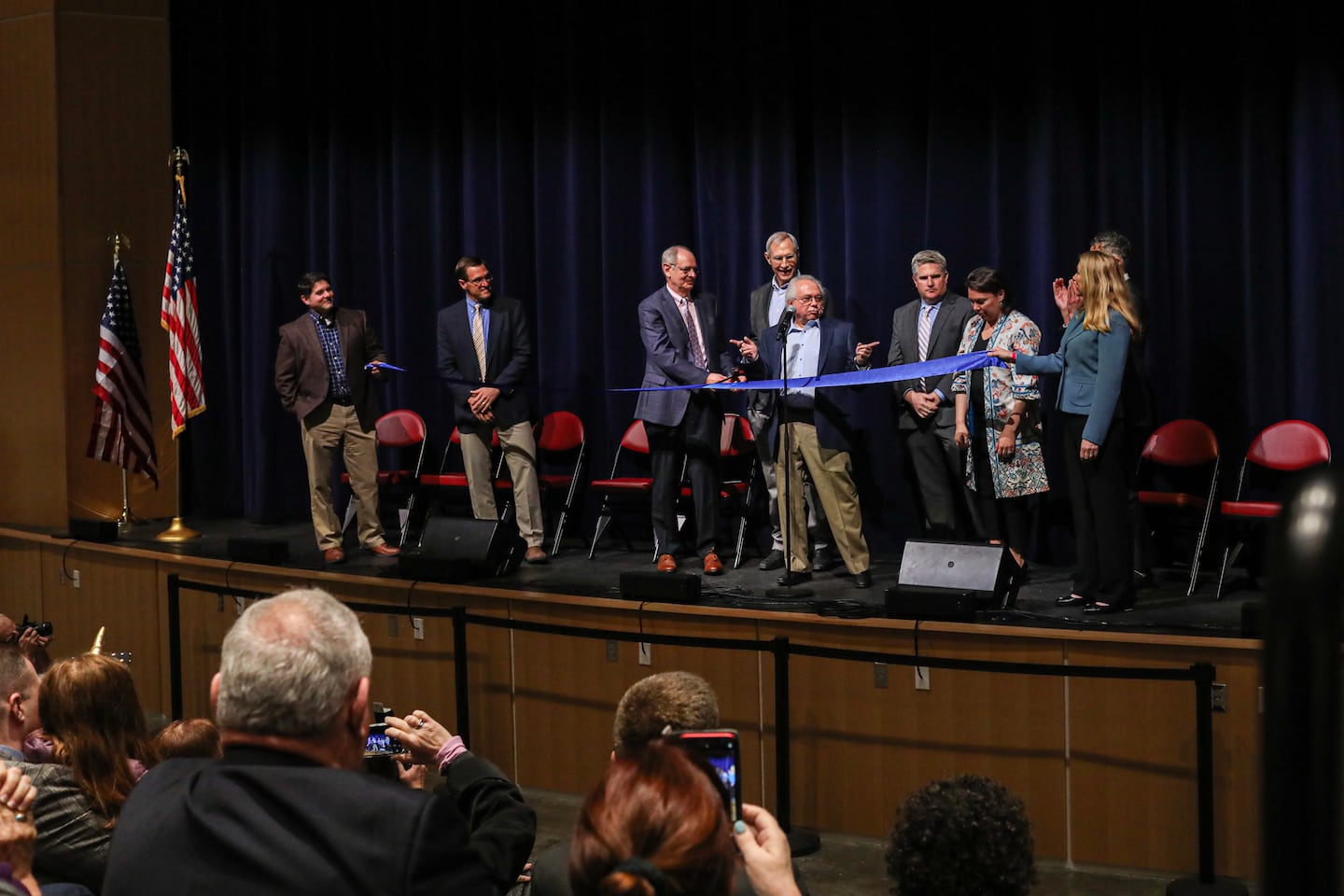
A for-profit entity that was established in 2020 to help handle financing for a new performing arts center in Nashua might be subject to New Hampshire’s public records law after all.
In a unanimous decision, the New Hampshire Supreme Court ruled Thursday that a trial court had relied on “flawed logic” to conclude the entity, NPAC Corp., was exempt from the state’s right-to-know law, so the justices sent the case back to the lower court for a more detailed analysis of whether the corporation must produce certain records upon request.
NPAC Corp. was created to work on the Nashua Center for the Arts, which opened in 2023, in what city leaders heralded as part of a downtown renaissance.
Thursday’s decision arises from one of more than a dozen lawsuits resident Laurie A. Ortolano has filed against Nashua in the past five years under the RTK law. It clarifies that a 2008 change to the law didn’t narrow the scope of entities bound by it. Legislators added language specifying that government-owned nonprofit corporations are public bodies subject to the RTK law, but that doesn’t mean all for-profit corporations are exempt, the court ruled.
To determine whether an entity constitutes a public body under the RTK law, judges still must conduct a “government function” test, just as they were required to do before the 2008 change to the law. The lower court failed to do that in this case.
In response to Thursday’s decision, Ortolano said it seems fairly clear that NPAC Corp. is using public money to perform a government function, especially considering how involved city officials have been in the entity’s financing and administration.
Ortolano said officials had long reassured the public that the performing arts center would be operated transparently, but then they established the for-profit entity.
“All of the records went dark, and you could not really track accountability of the money any longer,” she said.
Ortolano’s lawsuit alleges the city owns a nonprofit entity that owns the for-profit corporation, but city attorney Steven A. Bolton disputed that. Nashua doesn’t own any of the entities in question, he said. (That said, the city’s Board of Alderman approves mayoral appointees to lead the nonprofits.)
Bolton said he was pleased that the Supreme Court agreed with the trial court’s decision to dismiss the city as a defendant in this case, and he expressed confidence that the money raised for this project was spent appropriately on construction, furnishings, and perhaps initial operating costs.
Attorneys for the remaining defendant, NPAC Corp., didn’t respond Thursday to requests for comment. The corporation maintains it is a private entity exempt from the RTK law, even though its members are listed on the city’s website alongside other municipal boards and committees.
Gregory V. Sullivan, an attorney who practices in New Hampshire and Massachusetts and who serves as president of the New England First Amendment Coalition, said he suspects the superior court will conclude that NPAC Corp. is subject to the RTK law. He commended Ortolano as “a right-to-know warrior” and criticized leaders who resist transparency.
“The city of Nashua has historically, in my opinion, not been cooperative with requests to disclose the public’s records as opposed to other cities and towns in New Hampshire,” he said. “We the people are the government, own the government, and they’re our records.”
This article first appeared in Globe NH | Morning Report, our free newsletter focused on the news you need to know about New Hampshire, including great coverage from the Boston Globe and links to interesting articles from other places. If you’d like to receive it via e-mail Monday through Friday, you can sign up here.
Steven Porter can be reached at [email protected]. Follow him @reporterporter.
